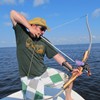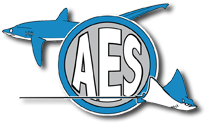 I am, among other things, a conservation geneticist. What that means is that I use the tools of molecular ecology and population genetics to make observations about species and populations in at-risk ecosystems, assess the status of anthropogenically disturbed populations, and generate data that has direct applications to conservation and management issues. Essentially, the only difference between what I do and what a population geneticist or molecular ecologist does is the motivation—I select systems to work in that have a high conservation priority.
I am, among other things, a conservation geneticist. What that means is that I use the tools of molecular ecology and population genetics to make observations about species and populations in at-risk ecosystems, assess the status of anthropogenically disturbed populations, and generate data that has direct applications to conservation and management issues. Essentially, the only difference between what I do and what a population geneticist or molecular ecologist does is the motivation—I select systems to work in that have a high conservation priority.
This motivation leads to a constant intellectual conflict at the bench. The tools of molecular ecology—PCR, gene sequencing, and, more frequently, high-throughput sequencing—are waste intensive. In order to avoid cross-contamination and practice precise, clean, technique, we use thousands of tiny plastic consumables every day. These come in the form of pipette tips, sterile packaging material, micro-centrifuge tubes, and numerous other plastic widgets. Often, because of the biohazard potential, these consumable cannot be recycled.
So we have a problem. As a conservation geneticist, we need these tools to produce the data necessary to make wise conservation and management decisions. As a sustainability minded individual, I find the massive daily accumulation of plastic waste inexcusable. Do we just accept this waste as the cost of conservation genetics? I believe that the answer is no. I think we can and should develop best practices to minimize the amount of plastic waste produced by a molecular lab while maintaining good, sterile technique. I would like to propose four guidelines, based off the principles of Reduce, Reuse, and Recycle, for minimizing waste in a conservation genetics lab.
Read More “Establishing Best Practices to Minimize Waste in a Conservation Genetics Lab” »


